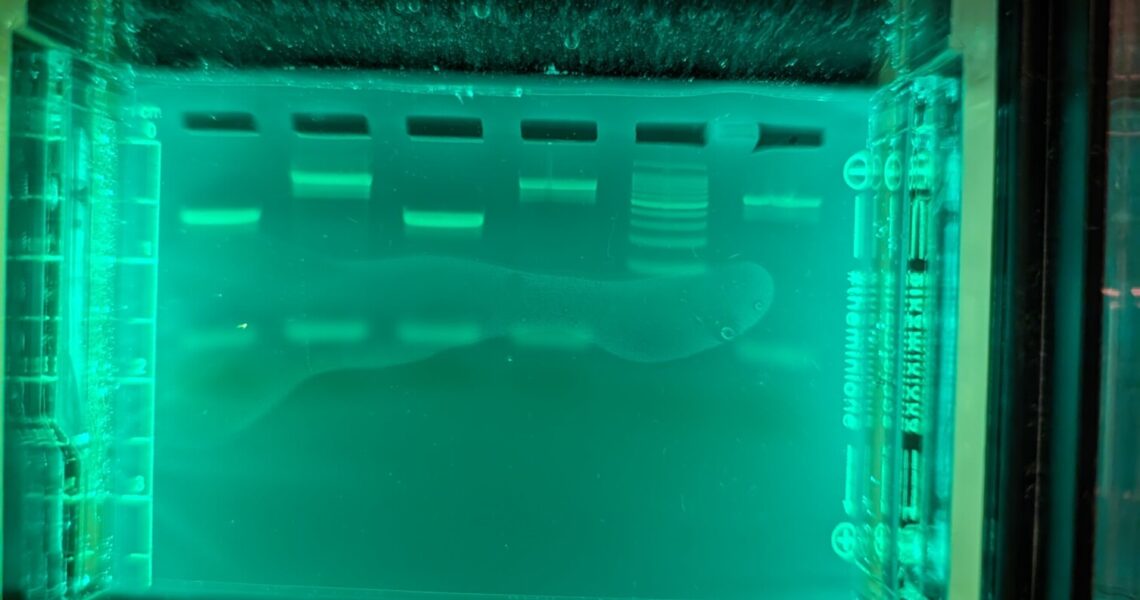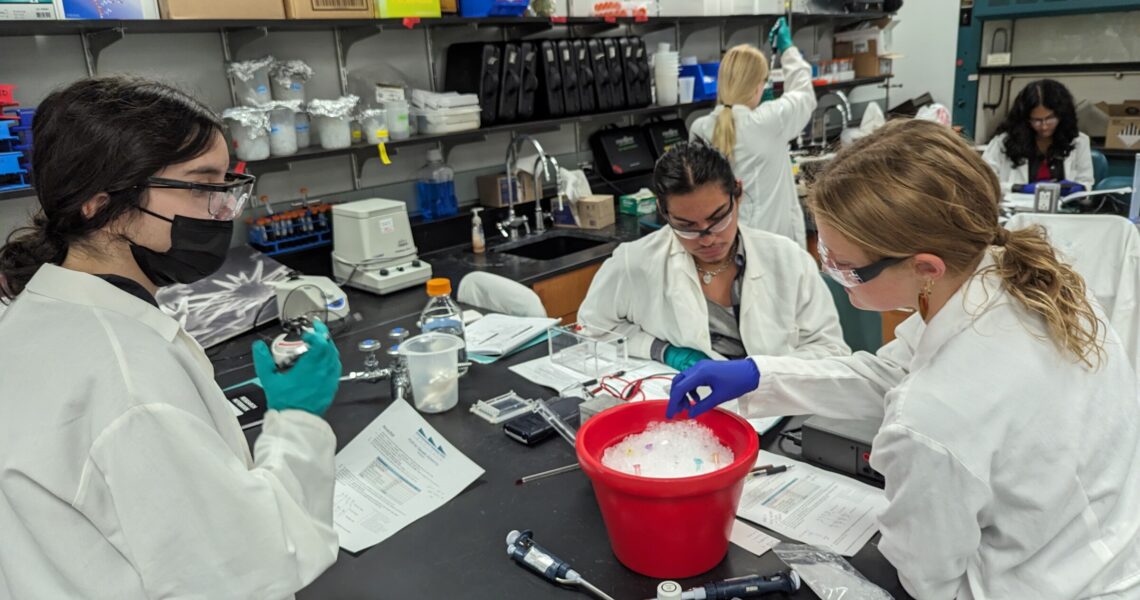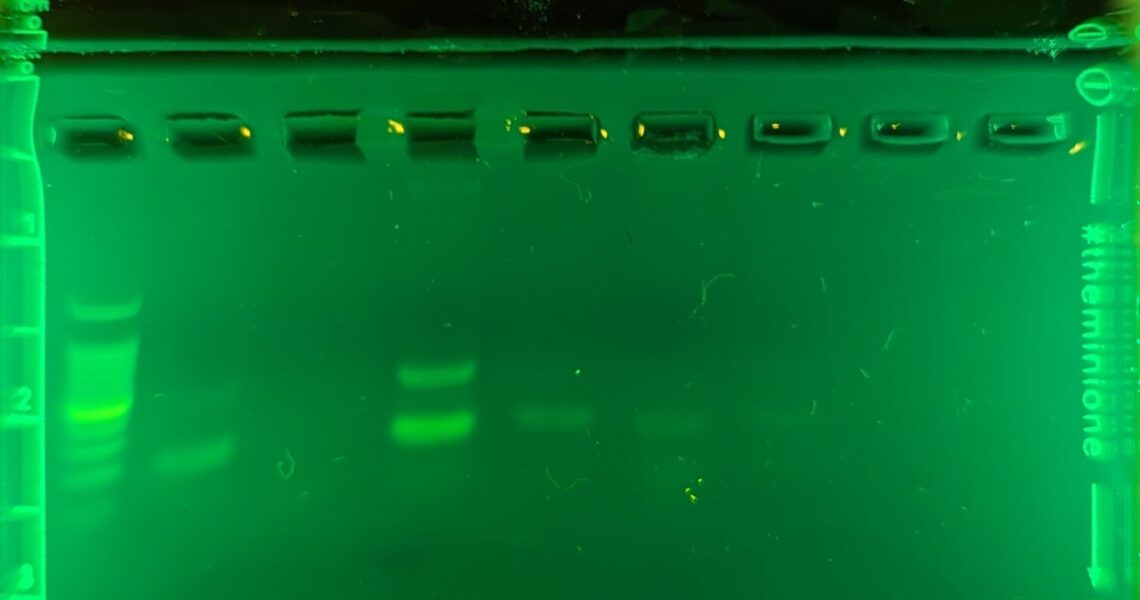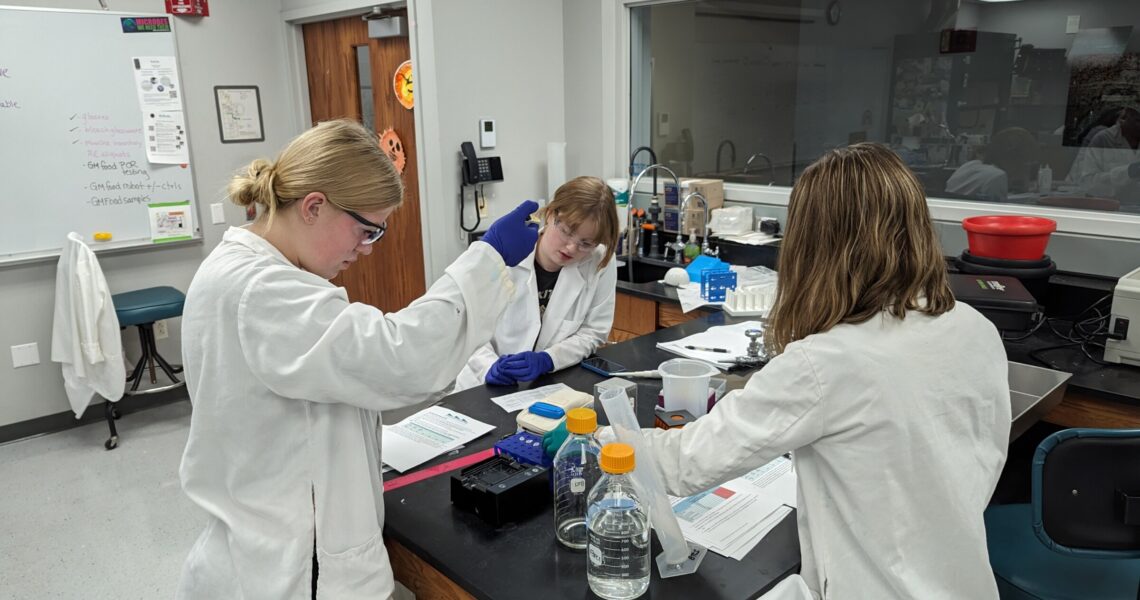Polymerase Chain Reaction (PCR) labs explain the principles and uses of this very powerful technique. Students set up a set of PCR reactions using different DNA templates. Agarose gel electrophoresis is then performed to visualize the PCR-amplified DNA products. Gels are photographed and used to determine the result of a given scenario: Genetic Screening, Detection of Genetically Modified Foods, or a bacterial colony screen.
Option 1: Students use PCR on different sized inserts to simulate short tandem repeats in a genetic screening scenario.
Option 2: Students use PCR on different corn-based food sources to detect for the presence of 35S promoter, often used in genetically modified food.
Key Topics:
- DNA Replication and DNA Polymerases
- PCR Reaction Components and their Functions
- Gel Electrophoresis and DNA Size Determination
This field trip can be taken On the Road with additional fees, given the following:
- Field trip can be held in a space away from food or drink is required, preferably without carpet.
- Access to electricity for each group of four students somewhere in the room.
This field trip is categorized as an Intermediate field trip, and is appropriate for students at a high school level or above who have had exposure to the concepts of molecular biology. Students that have had experience in the laboratory with micropipettes will be at a distinct advantage when they explore concepts that are fundamental to the way in which modern biotechnology works!
Length of Field Trip: 2.5 to 3 hours
Cost of Field Trip: $208 for up to 16 students; $13 for every additional student.



